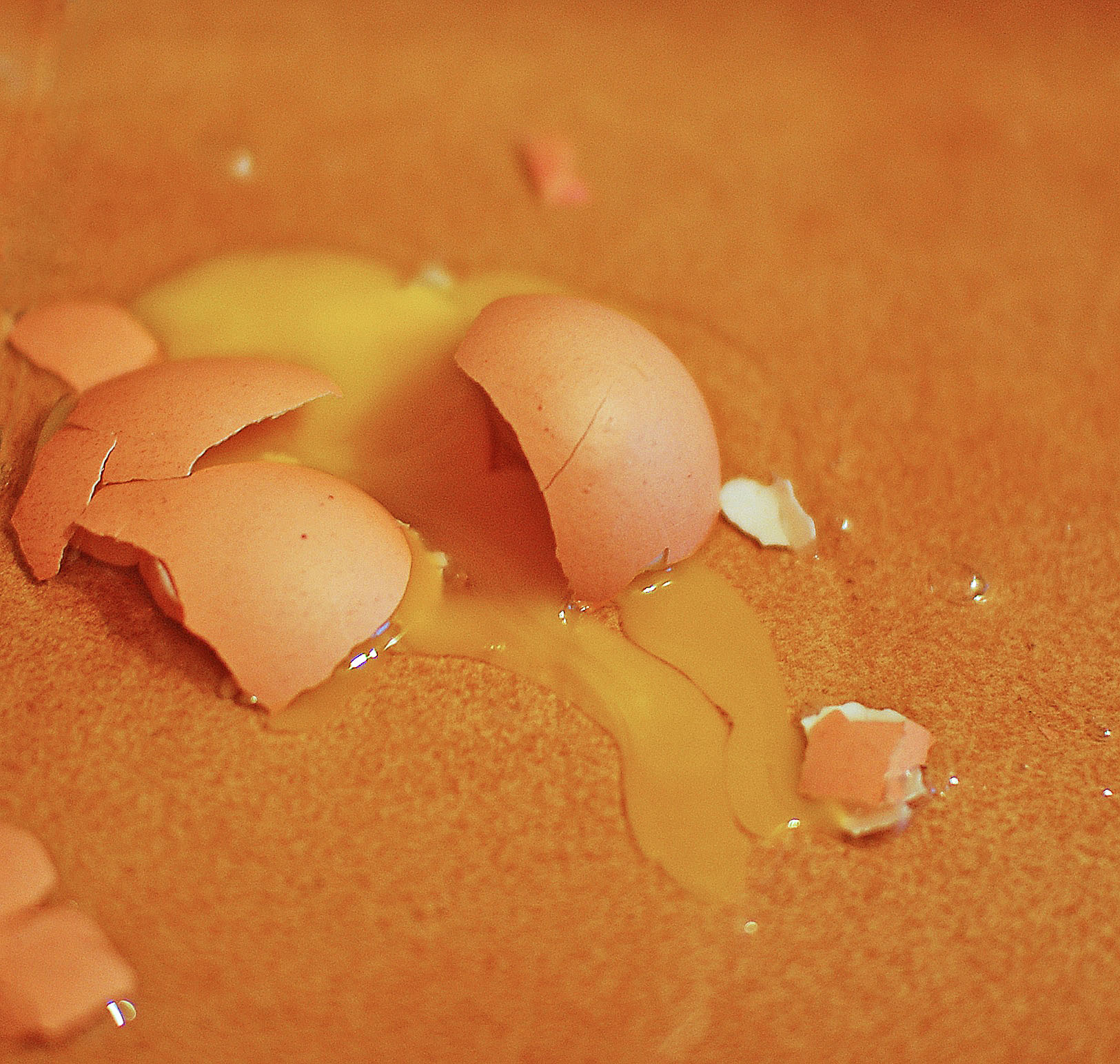
The laws of physics are reversible, so reversing a video of earth orbiting the sun breaks no law of physics and looks the same to us. Yet reversing a video of an egg breaking evokes laughter, even though every event in the breaking is as reversible as the earth’s orbit. It is common sense that things break apart easier than they come together, so an egg can break in a second but it can’t be put back together in a second. The second law of thermodynamics explains why eggs break easier than they “unbreak”.
If some colored gas is injected into the corner of a sealed box, by the second law it disperses throughout the box because gas molecules constantly adopt different combinations and those that disperse the colored gas are more numerous than those with the gas in a corner. Over time, the most likely result is that the gas is evenly spread. The colored gas molecules could all move back to the corner but it is extremely unlikely that they will.
If a lottery machine has balls numbered 1-99, the chance they emerge in the order 1, 2, 3 …99 is astronomically low. A more likely result is a mixed order and the same applies to gas molecules. The second law is based on the laws of probability so it’s a statistical law not a causal law. It isn’t that objects must become disordered but that they probably will. In a constantly changing world, disorder prevails because order is unlikely.
Disorder tends to increase because our world constantly changes. As Heraclitus said, life is a flux, so it isn’t possible to step twice into the same stream. Life isn’t the same from one moment to the next because quantum reality constantly generates it anew. The formal principle behind the Heraclitean flux is the quantum law of all action, that at the quantum level anything that can happen does. Disorder increases because quantum reality always tries new things, so the quantum law of all action underlies the second law of thermodynamics.